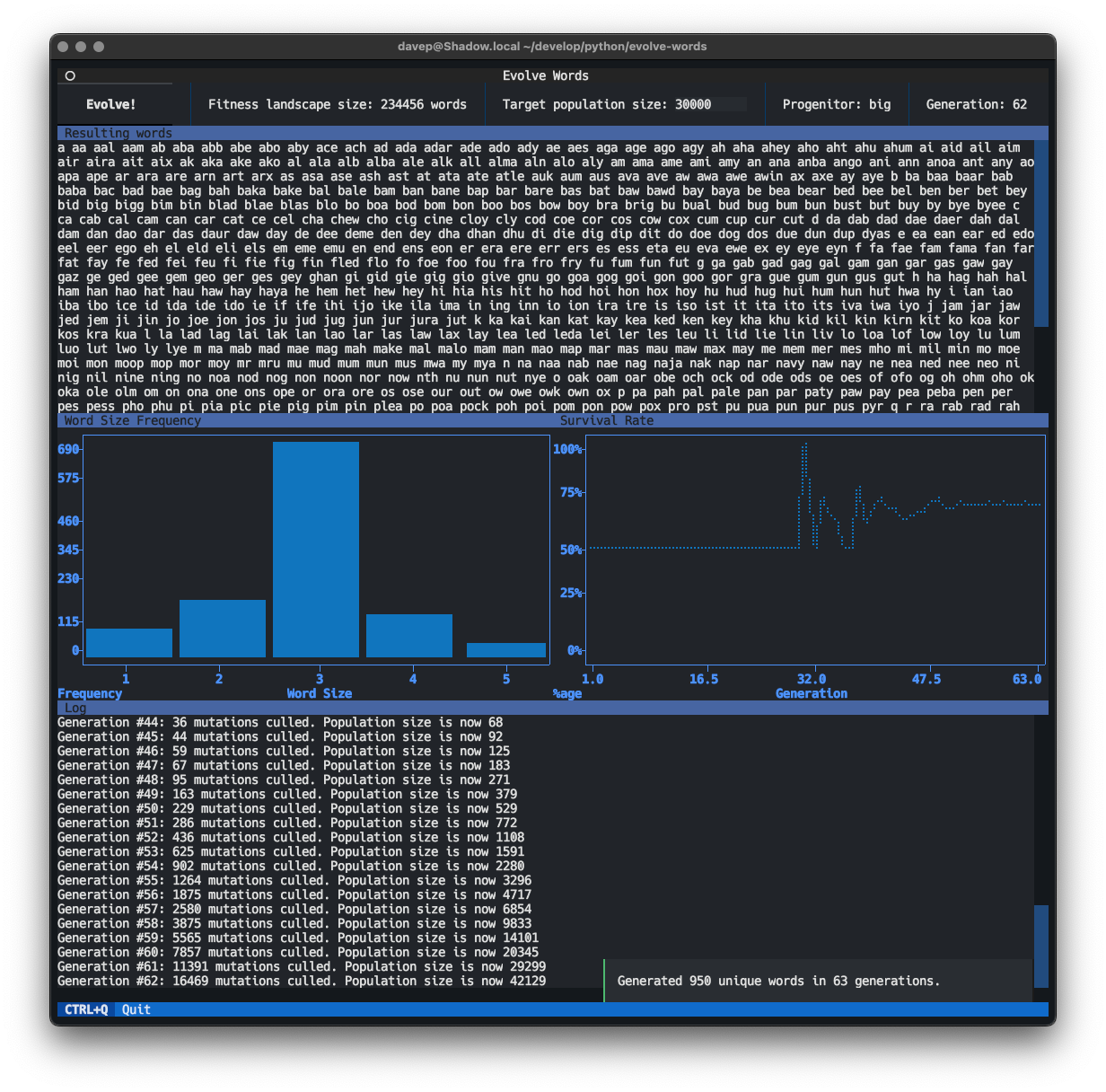Evolve Words
This follows on from my previous post. If you've not read that, it's worth having a dive in first for the background.
The Ruby code I mention, that was written back in 2008, was actually a pair
of scripts. The first one, called selection, did what visual-selection
does, only visual-selection does it with a nice TUI interface: it takes a
random collection of letters and symbols and evolves them into a target
phrase.
As covered before: I don't remember all of the details of the conversation that was going on at the time, but I do seem to remember something along the lines of "yes, but you start out and end up with something the same length" and "nothing more complex is made" (let's gloss over the whole "complex" thing for now... well okay let's just gloss over it, end of story; this is just a fun coding exercise).
What I do remember is that the seed of an idea was planted. Fine: how about I start off with one small word, and using a list of English words as the "fitness landscape" that the mutations had to survive in, mutate a population over and over and see what happens. Would I "randomly" create known words, with fewer letters, with the same letters, with more letters?
So this version of the code randomly did three forms of mutation: it would randomly flip a letter, or randomly delete a letter, or randomly insert a random letter. It would do this over and over and eliminate words that aren't in the original list (the simple form of selecting for survival within the landscape).
Like I said last time: never going to convince anyone of anything, but fun to write some code.
This version became selection2.
So, having turned selection into a TUI application with Textual, I had
to do the same with this code...

As before, because it's fun to do so, this leans heavily on the worker
API and
textual-plotext.
If you want to check out the app itself there's a GitHub
repo and it can also be
installed from PyPi using
pipx.